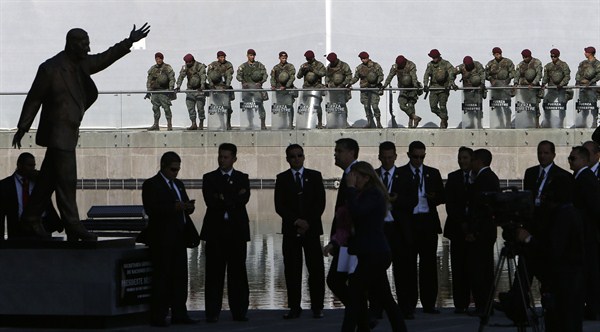Latin America and the Caribbean are dotted with potential crises and the worsening of any single challenge could have a destabilizing effect on the others. With U.S. security and prosperity tied closely to the region, policymakers in the United States need to be drafting policies that help improve economic and political stability from Mexico to Venezuela.
Although not always reflected in the attention of U.S. national security policymakers, no region other than Latin America and the Caribbean more directly affects the prosperity and security of the United States. As U.S. President Donald Trump and his team begin their work, mutually reinforcing dynamics and events in the region are poised to present Washington with expanded security challenges uncomfortably close to home.
Potential crises in the near-term span the region. In Mexico, mounting crime in the context of a new reality for relations with the United States could strain efforts to control the U.S. border and manage the challenge of transnational criminal organizations operating on both sides of it. In Central America’s Northern Triangle region—El Salvador, Honduras and Guatemala—an expanded wave of gang violence, prompted in part by U.S. deportations, has driven a regional migrant crisis that could escalate. Venezuela’s government, which has overseen the country’s descent into political and economic chaos, is increasingly cooperating with Iran, China and Russia. At the same time, Cuba has lost Venezuela as its principal economic beneficiary; if Trump undercuts Havana’s hopes for access to U.S. markets, it could potentially expand relations with Russia and China as well. And in Colombia, where drug production is on the rise, a historic peace deal with the Revolutionary Armed Forces of Colombia—the guerilla group known as the FARC—is inadvertently leading to the expansion of criminal gangs and guerrillas tied to the National Liberation Army, or ELN, another armed group.

